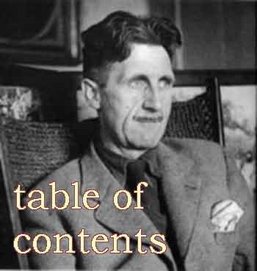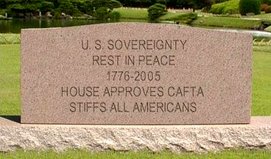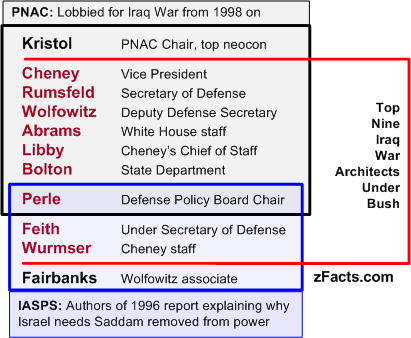
August 11, 2006
AIPAC Espionage Case Dismissal Gambit Fails
by Grant F. Smith
An Aug. 9, 2006, opinion by presiding Judge T.S. Ellis III [.pdf] has dealt a decisive blow to forces supporting full dismissal of the AIPAC espionage case. Defendants Steve Rosen and Keith Weissman, formerly employed by the American Israel Public Affairs Committee (AIPAC) in Washington, D.C., are charged with "cultivating relationships" with government officials cleared to access sensitive U.S. national security information, obtaining classified information from these officials, and transmitting the information to persons not otherwise entitled to receive it. Recipients of purloined U.S. national security information allegedly trafficked by AIPAC included members of the media, foreign policy analysts, and Israeli government officials.
The government's case against Rosen and Weissman hinges on applying the Espionage Act, which states,
"[W]hoever, lawfully or unlawfully having possession of, access to, control over, or being entrusted with any document, writing, code book, signal book, sketch, photograph, photographic negative, blue print, plan, map, model, instrument, appliance, or note relating to the national defense, willfully communicates or transmits or attempts to communicate or transmit the same to any person not entitled to receive it, or willfully retains the same and fails to deliver it on demand to the officer or employee of the United States entitled to receive it … shall be punished by a fine of not more than $10,000, or by imprisonment for not more than two years, or both."
Rosen and Weissman's requests for dismissal were based on complex challenges to the application of the Espionage Act. The defendants stated that oral transmissions of national security information cannot be prosecuted, since they are intangible, while also arguing that national security information is improperly defined by U.S. legal statute. Judge Ellis swatted down esoteric hairsplitting through a combination of dictionary definitions and citations of legal precedents that clearly reveal national defense information is not only extremely well defined, but can also be transmitted orally in his opinion:
"Indeed, this conclusion is buttressed by a statement of the district court in Morison, in which it stated that the statute – defines all types of tangibles: 'any document, writing, code book, signal book, sketch, photograph, photographic negative, blueprint, plan, map, model, instrument, appliance, or note relating to the national defense,' and also describes intangibles: 'information relating to the national defense which information the possessor has reason to believe could be used to the injury of the United States or to the advantage of any foreign nation.'"
The defendants also mounted a constitutional challenge to the Espionage Act based on the principle that the "due process" clause of the Fifth Amendment prevents punishment pursuant to a statute so vague that "men of common intelligence must necessarily guess at its meaning and differ as to its application."
Judge Ellis' opinion on Rosen and Weissman's request for dismissal left no doubt about who is, and who is not, entitled to receive classified national defense information. Citing precedent and the government's classification protocols, which Rosen was aware of after receiving a security clearance for his work at RAND, the Ellis opinion clarifies that Rosen and Weissman were located far outside the circle of those entitled to receive national defense information.
The Ellis opinion also reiterated that trafficking only orally transmitted classified information, which is "intangible" and cannot bear written "secret" stamps, does not absolve Weissman and Rosen. The opinion holds that if the government can prove the two knew they retransmitted closely held information with "a bad purpose either to disobey or to disregard the law" to both AIPAC and Israeli government officials, they will be found guilty.
FBI transcript snippets from the original indictment reveal that this may be a difficult obstacle for the defendants to overcome in trial. On June 11, 1999, Weissman allegedly told an Israeli government official that he had obtained a "secret FBI, classified FBI report."Rosen and Weissman's defensive dodge that the indictment violated their First Amendment free speech rights was similarly knocked out in the opinion. Judge Ellis was lenient in granting that a First Amendment review would be warranted even for operatives trafficking classified data as a specific function of their lobbying efforts:
"[E]ven under a more precise description of the conduct – the passing of government secrets relating to the national defense to those not entitled to receive them in an attempt to influence United States foreign policy."
However, precedent intervened again. Ellis found numerous cases of First Amendment rights being superseded by the specific details of the activity in question, obligations to protect national security, and the conduct of communication: "with respect to the First Amendment, 'the character of every act depends on the circumstances in which it was done.'"
On a more superficial level, the judge's willingness to toss out the defendant's challenge is tied to the opinion's detailed description of the circumstances of one meeting with a Pentagon official, Lawrence Franklin, who was convicted of passing information to the lobbyists.
"In August 2002, Rosen was introduced to Franklin through a contact at the DoD. The two agreed to meet on August 21, 2002, but the meeting was postponed. Rosen, Weissman, Franklin and another DoD employee finally met nearly six months later, on February 12, 2003. At this meeting, Franklin disclosed to Rosen and Weissman information relating to a classified draft internal United States government policy document concerning a certain Middle Eastern country. He told Rosen and Weissman that he had prepared a separate document based on the draft policy document. The three alleged co-conspirators met again on March 10, 2003 at Union Station in Washington, D.C. The three men conducted the meeting in successive restaurants and ended the meeting in an empty restaurant."
Rosen and Weissman hagiographers such as Walter Pincus of the Washington Post have continually spun stories based on defense team First Amendment scares now debunked by Ellis and inaccurate, to the point of sloppy, references to the breadth of applicable criminal statutes. A broader review of recent mainstream press accounts reveals that dutiful "issue framing" of the case as a threat to the U.S. foreign policy "establishment' and disclosure of government corruption by the news media continues. However, Ellis has not only dispersed this widely diffused PR cloud with clear definitions and references to precedent, he has also opened the door for more future AIPAC prosecutions.
Ellis quashed the defense team's motion to dismiss based on the "rarity" of Espionage Act prosecutions. In their filing, the defendants claimed that there was no warning that Rosen and Weissman's or AIPAC's activities might be prosecuted since "past applications of the statute fail to provide fair warning that the statute could be applied to the facts alleged in the superseding indictment." In other words, court dockets didn't signal to AIPAC that violating U.S. criminal statutes in pursuit of their policy objectives would ever be punished.
Ellis made it clear that lack of prosecutions under any criminal statute is not a safe harbor or license for would-be criminals, including AIPAC officials.
"[T]hat the rarity of prosecution under the statutes does not indicate that the statutes were not to be enforced as written. We think in any event, the rarity of use of the statute as a basis for prosecution is at best a questionable basis for nullifying the clear language of the statute, and we think the revision of 1950 and its reenactment of section 793(d) demonstrate that Congress did not consider such statute meaningless or intend that the statute and its prohibitions were to be abandoned."
Judge Ellis may be signaling to the DoJ and grand juries across America a new willingness to prosecute criminal statutes AIPAC would rather see lying dormant. The two most relevant are the Logan Act and Foreign Agent Registration Act (FARA). No person or organization has ever been successfully prosecuted under the 1798 Logan Act. Logan Act clauses clearly seek to prevent core AIPAC lobbying activities achieved by coordinated communications and links to a foreign government:
"Any citizen of the United States, wherever he may be, who, without authority of the United States, directly or indirectly commences or carries on any correspondence or intercourse with any foreign government or any officer or agent thereof, with intent to influence the measures or conduct of any foreign government or of any officer or agent thereof, in relation to any disputes or controversies with the United States, or to defeat the measures of the United States, shall be fined under this title or imprisoned not more than three years, or both."
DoJ investigations of AIPAC over the past decade may already have gathered enough wiretap, public domain, and other documentary evidence to indict the lobby for numerous "end runs" of U.S. policy in cahoots with the Israeli government. More troubling for AIPAC, the historical drought of Foreign Agent Registration Act indictments should no longer provide comfort. FARA is an obscure and oft-abused law that requires foreign agents to register with the Justice Department and disclose their financing and activities. FARA defines foreign agents as:
"(1) any person who acts as an agent, representative, employee, or servant, or any person who acts in any other capacity at the order, request, or under the direction or control, of a foreign principal or of a person any of whose activities are directly or indirectly supervised, directed, controlled, financed, or subsidized in whole or in major part by a foreign principal, and who directly or through any other person –
"(i) engages within the United States in political activities for or in the interests of such foreign principal;
"(ii) acts within the United States as a public relations counsel, publicity agent, information-service employee or political consultant for or in the interests of such foreign principal;
"(iii) within the United States solicits, collects, disburses, or dispenses contributions, loans, money, or other things of value for or in the interest of such foreign principal; or
"(iv) within the United States represents the interests of such foreign principal before any agency or official of the Government of the United States; and
"(2) any person who agrees, consents, assumes or purports to act as, or who is or holds himself out to be, whether or not pursuant to contractual relationship, an agent of a foreign principal as defined in clause (1) of his subsection."
In 20 years through 1992, only two FARA indictments were lodged by the Department of Justice. DoJ filed a third in 1992 against former Colorado legislator Sam Zakhem for promoting a "Stop Saddam" campaign with unreported Kuwaiti funds after Iraq's invasion of Kuwait in 1990.
The public record documents numerous instances in which members of the Israel lobby received explicit instructions or acted as unregistered agents for various Israeli governments. The 1996 neoconservative "Clean Break" document outlines one group of Israel lobby operatives' coordinated plan with Benjamin Netanyahu to trade missile-defense contract pork for U.S. congressional support for moving the U.S. embassy from Tel Aviv to Jerusalem. Ehud Barak's hurried calls to Israel lobby leaders in the U.S. to intervene whenever he felt pressured to make concessions during U.S. peace plan initiatives at Camp David are but another star within a constellation of Israel lobby FARA violations.
Americans are increasingly coming to understand how the illegal machinations of the Israel lobby have led to many harebrained, bloody, and costly policies, from the U.S. invasion of Iraq to unrestricted cash "Israel foreign aid packages" that destabilize the Middle East and undermine America's reputation. The judicial branch's prosecution of the crimes that lie at the very core of AIPAC's activities may succeed in placing U.S. policy under the guidance of broad American interests. Judges like Ellis may succeed where both the executive and legislative branches have succumbed to the power and corruption of AIPAC.
Reprinted courtesy of Institute for Research: Middle Eastern Policy.
Find this article at: http://www.antiwar.com/orig/gsmith.php?articleid=9517







No comments:
Post a Comment